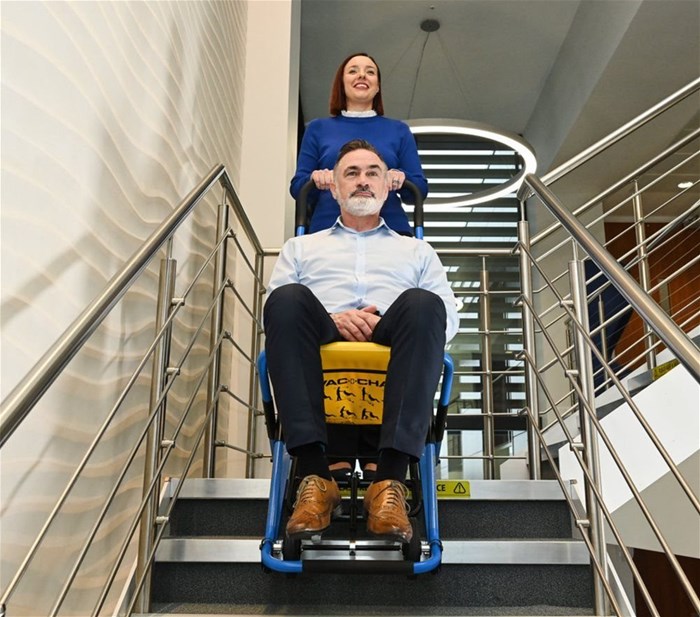As we reflect on the essence of basic rights this Human Rights Month, and as occupational health and safety compliance becomes more critical, organisations must prioritise the diverse needs of their staff in emergency situations. In the wake of several disasters affecting South Africans in the past few months, from floods to fires, emphasis lies in ensuring equitable access and safety during emergencies.

Image: Specially designed evacuation chair. Source: Evac+Chair
Accessibility takes centre stage during Human Rights Month, with a specific focus on equal opportunities for evacuation during emergencies. The use of evacuation chairs, specially designed to carry mobility-impaired people downstairs in an emergency evacuation when the lifts are not working, plays a crucial role in this commitment. Ensuring their safety is a step towards realising human rights principles, particularly in the following scenarios:
- Natural disasters (floods or torrential rains): In situations like torrential rains or floods, evacuation becomes critical. Mobility challenges can hinder swift and safe evacuation, making the use of evacuation chairs essential to ensure the well-being of all individuals.
- Fires: During a fire emergency, quick and efficient evacuation is paramount. Mobility issues can create obstacles, making evacuation chairs a practical solution to navigate staircases or uneven terrain, ensuring that everyone can promptly exit the affected area.
- Building evacuations: In various emergency scenarios, such as building evacuations, individuals with mobility challenges face difficulties navigating stairs or crowded spaces. Evacuation chairs offer a tangible solution, facilitating the equal opportunity for safe evacuation for all individuals, regardless of physical abilities.
In the broader dialogue surrounding human rights, businesses, institutions, and property owners play a crucial role. This Human Rights Month, the encouragement is for organisations to consider inclusive evacuation strategies, recognising it as an ethical responsibility to safeguard the well-being and safety of every individual. Natural disasters, fires, and medical emergencies are instances where prioritizing accessibility in emergency preparedness becomes paramount.
Yvette Glass, managing director of Evac+Chair SA, adds, "In promoting inclusivity in emergency solutions, we are collectively shaping a safer and more compassionate society. It is not just a responsibility; it is a shared commitment to ensuring that no one is left behind in times of need."


















































